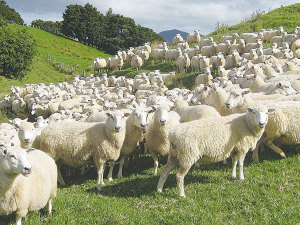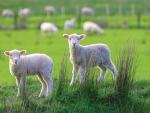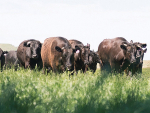A Research programme supported by Beef+Lamb NZ is investigating the potential of ‘accelerometer’ sensors for early detection of conditions such as facial eczema (FE) in sheep.
Accelerometers can gather data through measuring the movement or acceleration of an object. They feature in many everyday devices such as smartphones for providing step counts.
In farming, they can be used to monitor behaviour of livestock to inform management decisions around welfare and production efficiency. Actions such as head shaking or avoiding sunlight may be indicators of FE.
The B+LNZ project, jointly led by senior AgResearch scientist Dr Karin Schutz, investigated the use of accelerometers fitted to a collar to predict the behaviour of sheep. It established that the collars with sensors attached are simple and effective to use with sheep. Data gathered is now being analysed, including identifying findings which could be used to predict early signs of disease or injury.
“Technology such as accelerometers allow for data from a large number of animals to be obtained continuously, 24/7, without the presence of humans,” says Schutz.
“It is relatively cheap compared to using humans to observe the animals or setting up video equipment. This makes the technology particularly attractive for extensively managed livestock which can be studied under normal management conditions.”
He says behaviours such as grazing, ruminating and resting are the main behaviours of sheep on pasture. Monitoring changes in daily behaviour patterns across the annual production cycle, while capturing changes in environmental conditions, can reveal key metrics that can be used to improve welfare and production efficiency on farm.
“These same metrics could possibly provide early warning systems for significant issues such as facial eczema, lameness and gastrointestinal parasites.
“By developing tools for early detection, farmers can reduce economic losses and enhance productivity and welfare through timely interventions and improved management practices.”
Dr Mhairi Sutherland, B+LNZ’s senior scientist animal health and welfare, says research like this is exciting as it could be a step towards providing a practical tool for farmers to manage disease risk.
“Facial eczema is a serious issue for livestock farmers, particularly in warmer and more humid regions. Having a way to detect the early signs of the disease before visible signs appear could make a significant difference in mitigating its impacts,” she says.
She adds that new technologies such as accelerometers could complement other onfarm disease management approaches. “By integrating this data with other risk factors such as spore counts and weather conditions, farmers could take proactive measures to reduce the risk of outbreaks and improve overall animal health.”
The sensors were fitted to the sheep using collars developed by Bryan Thompson, a PhD student at AgResearch’s Invermay campus.
The research project was done in November 2024 at the AgResearch farm in Hamilton with a group of mixed aged Romney type ewes. The collars feature 23mm wide webbing and buckles and weigh 230-250g.
Alternative ways to fit accelerometers to livestock include halters, harnesses or ear tags. However, Schutz says the research established that the collars are effective and practical to use on sheep over an extended period without causing irritation, getting caught in anything or being torn off.
“They can be put on the animals in the yards quickly and easily with minimal stress and the sheep adapted quickly,” says Schutz.
“We didn’t want anything around the animals’ faces as we are also looking at predicting shortterm behaviours that may be associated with FE which often affects the head of the animals.”
The next phase of the programme will be funded through the Eliminating Facial Eczema Impacts (EFEI) programme, a partnership between B+LNZ and the Ministry for Primary industries through the Sustainable Food and Fibre Futures (SFFF) fund.











